
32 minute read
California Case Summaries
California Case Summaries New California Civil Cases
by Monty A. McIntyre, Esq.
These recent cases summarized by Monty A. McIntyre are from his publication California Case Summaries™. Monty prepares short summaries, organized by legal topic, of every new published California civil and family law case that California lawyers can subscribe to on a monthly, quarterly or annual basis. For more information go to https:// californiacasesummaries.mykajabi.com. A California civil trial lawyer since 1980 and a member of ABOTA since 1995, Monty serves as a mediator, arbitrator and referee with ADR Services, Inc. handling cases in the areas of business, elder abuse, employment/wage & hour, insurance bad faith, legal malpractice, medical malpractice, personal injury, real property and wrongful death. To schedule a matter, contact Monty’s case manager Christopher Schuster at ADR Services, Inc. at (619) 233-1323 or christopher@adrservices.com.
CALIFORNIA SUPREME COURT
Civil Code
Scholes v. Lambirth Trucking Co. (2020) _ Cal.5th _ , 2020 WL 827863 : The California Supreme Court affirmed the Court of Appeal decision finding plaintiff’s action for damage to his trees from a fire that started on defendant’s property was untimely filed under the applicable three-year statute of limitations for trespass. The five-year statute of limitations and heightened damages provisions of section Civil Code 3346 are inapplicable to damages to timber, trees, or underwood from negligently escaping fires. (February 20, 2020.)
Employment
Frlekin v. Apple Inc. (2020) _ Cal.5th _ , 2020 WL 727813: Responding to a request of the United States Court of Appeals for the Ninth Circuit to decide a question of California law, the California Supreme Court ruled that time spent on the employer’s premises waiting for, and undergoing, required exit searches of packages, bags, or personal technology devices voluntarily brought to work purely for personal convenience by employees is compensable as “hours worked” within the meaning of Industrial Welfare Commission wage order No. 7-2001. (February 13, 2020.)
Kim v. Reins Internat. Cal., Inc. (2020) _ Cal.5th _ , 2020 WL 1174294: The California Supreme Court reversed the Court of Appeal’s ruling affirming the trial court’s order granting defendant’s motion for summary judgment regarding the alleged Labor Code Private Attorneys General Act of 2004 (PAGA; Labor Code, section 2698 et seq.) violation after plaintiff settled his individual claims. Ruling on an issue of first impression, the California Supreme Court held that employees do not lose standing to pursue a claim under PAGA if they settle and dismiss their individual claims for Labor Code violations. Settlement of individual claims does not strip an aggrieved employee of standing, as the state’s authorized representative, to pursue PAGA remedies. (March 12, 2020.)
CALIFORNIA COURTS OF APPEAL
Appeals
County of Humboldt v. App. Div. (2020) _ Cal.App.5th _ , 2020 WL 1164262: The Court of Appeal granted a writ petition directing respondent to vacate its earlier order dismissing petitioner’s appeal and to issue a new order transferring the case to the Court of Appeal for further proceedings. In an enforcement action, petitioner issued a penalty of $88,800 against real party in interest Alejandro
Quezada for conditions on his property deemed to be public nuisances in violation of a county ordinance. Quezada filed a de novo appeal to the superior court, which reduced the penalty from $88,800 to $59,200. Petitioner then appealed to the superior court appellate department which dismissed the appeal. The Court of Appeal ruled that, in an unlimited civil action, a final judgment or order from a de novo appeal to the superior court under Government Code section 53069.4 is reviewable on appeal to an intermediate appellate court. (C.A. 1st, March 10, 2020.)
Arbitration
Aldea Dos Vientos v. CalAtlantic Group, Inc. (2020) _ Cal.App.5th _ , 2020 WL 581464: The Court of Appeal overruled the trial court’s order confirming the arbitrator’s dismissal of an arbitration due to the homeowner association’s failure to vote in favor of pursuing arbitration before the arbitration was commenced as required by section 7.01B of the covenants, conditions, and restrictions. 1 The Court of Appeal found the arbitrator exceeded his power because section 7.01B contravened state statutory housing policy by giving the developer the unilateral power to bar actions for construction defects. The Court of Appeal declined to follow Branches Neighborhood Corp. v. CalAtlantic Group, Inc. (2018) 26 Cal.App.5th 743 and ruled that section 7.01B violated the state policy against unreasonable servitudes set forth in the Davis-Stirling Act, which prohibits the enforcement of unreasonable provisions in the CC&R’s (Civil Code, section 5975(a)). (C.A. 2nd., February 6, 2020.) Dougherty v. Roseville Heritage Partners (2020) _ Cal.App.5th _ , 2020 WL 1501701: The Court of Appeal affirmed the trial court’s order denying defendant’s motion to compel arbitration in a case alleging elder abuse and wrongful death based upon the reckless and negligent care given to plaintiffs’ elderly father while residing in defendants’ facility. The trial court properly found the arbitration agreement was procedurally unconscionable because it was part of a 70-page stack of documents that plaintiff Lori Dougherty lacked time to review because her father was arriving imminently in an ambulance, plaintiff was never told she could modify, negotiate, or refuse to sign any of the admission documents, and plaintiffs had established that Dougherty had no opportunity to negotiate the arbitration agreement. The trial court properly found the agreement to be substantively unconscionable because of its restrictions on discovery, 2 limitations on damages, 3 and advance waiver of jury trial rights for any nonarbitrable causes of action. The discovery limitations were particularly unconscionable because they limited the statutory discovery rights to vindicate an elder abuse claim. Finding the agreement was permeated with unconscionable provisions, the trial court properly declined to sever the offending provisions and declared the entire agreement void. (C.A. 3rd, March 30, 2020.)
1 Section 7.01B required a vote of at least 51 percent of the association’s membership prior to beginning arbitration. 2 Depositions could be requested but could not be taken as a matter of right. There was no provision for interrogatories or requests for admission.
3 Punitive damages could not be awarded.
Attorney Fees
George v. Shams-Shirazi (2020) _ Cal.App.5th _ , 2020 WL 632431: The Court of Appeal affirmed the trial court’s order awarding wife attorney fees of $13,000 under Family Code section 271 for having to defend husband’s repeated attempts to modify a custody order. Husband’s sole argument on appeal was that wife’s request was untimely because it was filed later than 60 days after the final judgment as required by Rules of Court, Rule 3.1702(b). The Court of Appeal held that Rule 3.1702(b) does not apply to postjudgment claims for attorney fees awarded under Family Code section 271. (C.A. 1st, February 11, 2020.)
Attorneys
Reeve v. Meleyco (2020) _ Cal.App.5th _ , 2020 WL 1429362: The Court of Appeal reversed a judgment for plaintiff, following a jury trial, awarding plaintiff (an attorney suing for a referral fee) $78,750 and an award of $49,364.35 in prejudgment interest. Plaintiff was not entitled to a referral fee because the client’s written consent to the referral fee was not obtained as required by former rule 2-200 of the State Bar Rules of Professional Conduct (in effect during the relevant time period). Although the attorney handling the case later sent a letter to the client explaining that a referral fee would be paid, that it would not reduce the amount of the client’s recovery, and the client acknowledged getting this letter and understanding what it said, the Court of Appeal ruled that the acknowledgment did not constitute written consent to the referral fee. Finally, plaintiff’s quantum meruit claim was barred by the applicable two-year statute of limitations. (C.A. 3rd, March 24, 2020.)
Civil Procedure
Gulf Offshore Logistics, LLC v. Super. Ct. (2020) _ Cal. App.5th _ , 2020 WL 772610: The Court of Appeal granted a petition for writ of mandate and directed the superior court to vacate its order denying petitioner’s motion for summary judgment in a class action alleging California wage and hour violations by non-California residents and former crew members of a vessel that provided maintenance services to oil platforms located in the Pacific Ocean off the California coast. The trial court erred because Louisiana law, rather than California law, applied. Louisiana’s interest in the application of its laws was stronger than California’s. The employment relationships here were formed in Louisiana, between Louisiana-based employers and non-resident employees who traveled to that state to apply for, and accept employment. They received training and orientation in Louisiana and the administrative aspects of their employment were performed in that state. California’s interests were weaker because, although the crew members performed some of their work in California, neither the employees nor the employers were residents or taxpayers of California. (C.A. 2nd, February 18, 2020.)
Torts
Coats v. New Haven Unified School Dist. (2020) _ Cal. App.5th _ , 2020 WL 1181526: The Court of Appeal reversed the part of the trial court’s order granting defendant’s motion for judgment on the pleadings against the minor plaintiff, but it affirmed the trial court’s order against the foster mother plaintiff in an action alleging the minor plaintiff had been sexually abused by one of her high school teachers. The trial court granted the motion for judgment on the pleadings against both plaintiffs because they had not filed a government tort claim before they filed their lawsuit. The Court of Appeal reversed as to the minor plaintiff because of the 2019 amendment of Code of Civil Procedure 340.1, which extended the time to bring an action for damages resulting from childhood sexual assault to 22 years from the date the plaintiff attains the age of majority or five years from the date plaintiff discovers or reasonably should have discovered that psychological injury or illness occurring after the age of majority was caused by the sexual assault. (C.A. 1st, March 12, 2020.) n

California Offices: Irvine, Los Angeles and San Francisco 949.660.8200 | ankura.com

Solving challenges with the right combination of expertise.
Ankura Consulting Group (Ankura) is a specialized independent consulting firm that provides litigation, financial, restructuring, strategic and operational consulting services. Our clients are corporations, legal counsel and government agencies facing the challenges of uncertainty, risk, distress and significant change. We focus on industries undergoing substantial regulatory or structural change and on the issues driving these transformations.
Ankura is comprised of more than 1,500 professionals, including highly experienced eDiscovery experts; financial analysts; economists; certified public accountants; certified business appraisers; merger and acquisition specialists; professional engineers; and information management analysts. We have offices in over 38 cities worldwide.
At Employees First Labor Law, we provide exceptional legal representation to those who were wrongfully terminated, discriminated against, harassed, or injured at work.
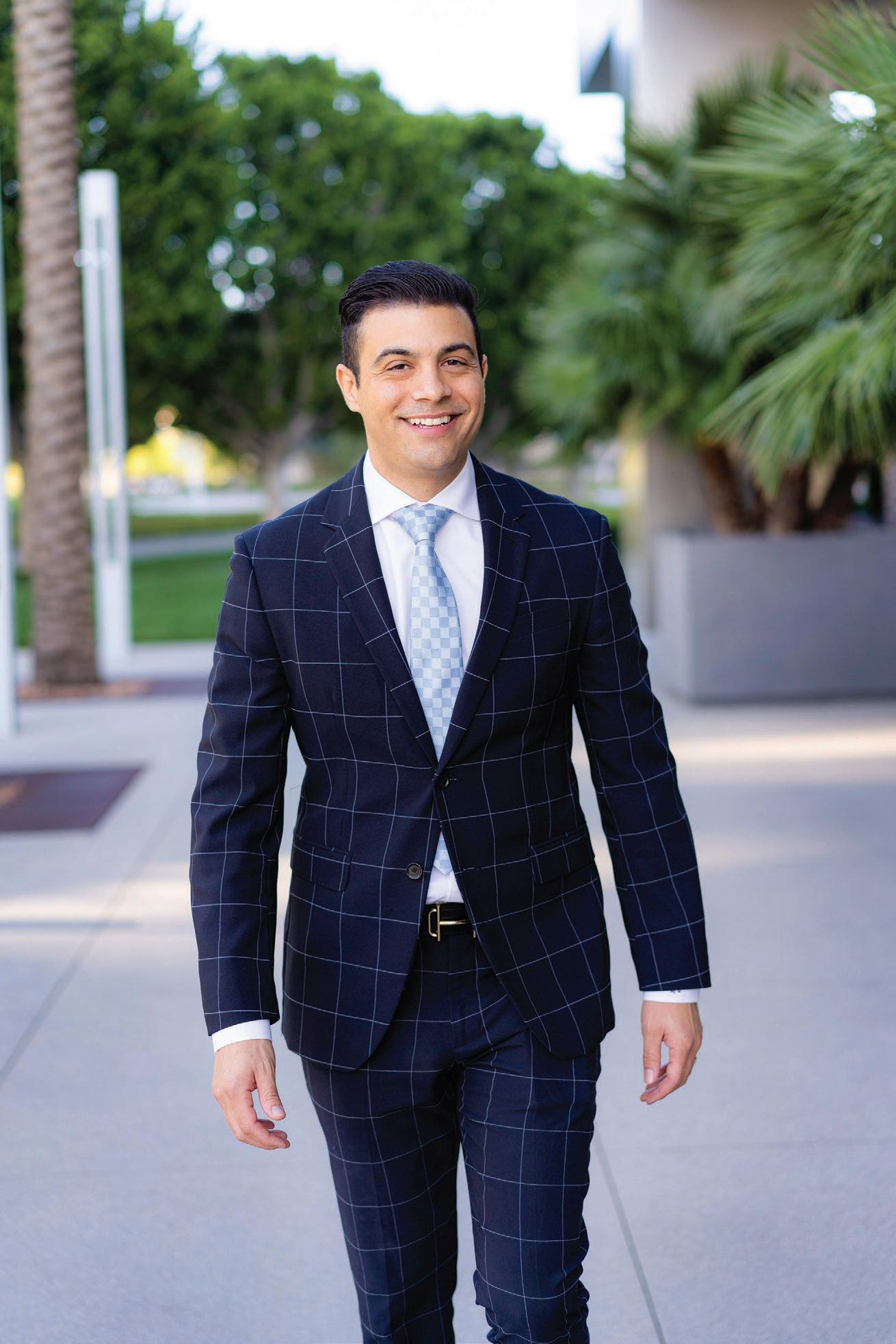
Our typical client has been fired for an illegal reason, has been discriminated against because of their race or gender or religion or sexual orientation, has been sexually harassed or retaliated against, hasn’t been paid overtime or their fair wage, or is facing a workplace injury. We’re labor law experts. We’re here to help you through this difficult time.
RECENT WINS:
Traumatic Brain Injury
$5,150,000 Settlement Wage & Hour Class Action $1,950,000 Settlement Sexual Harassment & Wrongful Termination $1,800,000 Settlement Disability Discrimination & Wrongful Termination $920,000 Settlement Workers Compensation $750,000 Settlement
Jonathan LaCour, Managing Attorney
Generous Referral Fees Paid
5.0 ★★★★★ Average Rating
Jonathan LaCour | Managing Attorney
310.853.3461 | jonathanl@pierrelacour.com
f o r R e p r e s e n t i n g H u m a n B e i n g s i n P e r s o n a l I n j u r y C a s e s A Passion
by Dan Baldwin
I have the best job in the world. I am passionate about representing individuals in personal injury cases because plaintiffs, human beings who have been harmed, are overmatched when taking on insurance companies, corporations, the government or other major entities that are at fault. Our firm gives these individuals a voice and the confidence to pursue justice against those who have harmed them,” says Robert Francavilla, Partner at Casey Gerry Schenk Francavilla Blatt & Penfield LLP, San Diego’s most established plaintiffs’ law firm.
Francavilla focuses his career on serious personal injury, premises liability and highway design cases, including wrongful death, paraplegia, quadriplegia, severe burns, loss of limbs and major orthopedic injuries.
In a Wheelchair Unbound
John H. v. Clinton River Medical Products was a complex product liability case involving a client who was wheelchair bound and who sustained fractures to the bones in his lower leg when his wheelchair’s power assist mechanism failed. He was descending the wheelchair ramp from his van when the device failed, sending the plaintiff crashing into the running board of a parked SUV. The plaintiff broke his tibia and fibula and although he did not require surgery, he was left with chronic pain.
Francavilla’s client, a 53-year-old paraplegic, was an Olympic caliber swimmer at 19 when he suffered a spinal cord injury in a swimming pool accident. Shortly before leaving the rehab hospital, he and his parents were told that he’d never be self-sufficient, that he was unemployable, he’d always be in a wheelchair, and that he would need to live in a nursing care facility. Undaunted, Francavilla’s client finished school, went to medical school, graduated, and ironically returned for his internship at the rehab hospital where he was treated. “We weren’t about to let down a person of that strength and character,” Francavilla says.
The challenges in this product liability case were numerous and daunting. First, Francavilla had to convince a jury that someone who is paralyzed can still feel pain and in their client’s case, a heightened degree of pain.
The defense argued that since he had not had surgery, had not complained about the pain, had less than $30k in medical expenses, that he had suffered only a minor injury and was exaggerating the pain. “The difference between me and the defense is that I get to know the people I represent. Had the opposing attorneys done the same, they would have discovered that John just does not complain. From the time he suffered his spinal cord injury, through pre-med, medical school and on the job as a radiologist, he never wanted a handout and vowed to make it on his own regardless of the challenges he faced.”
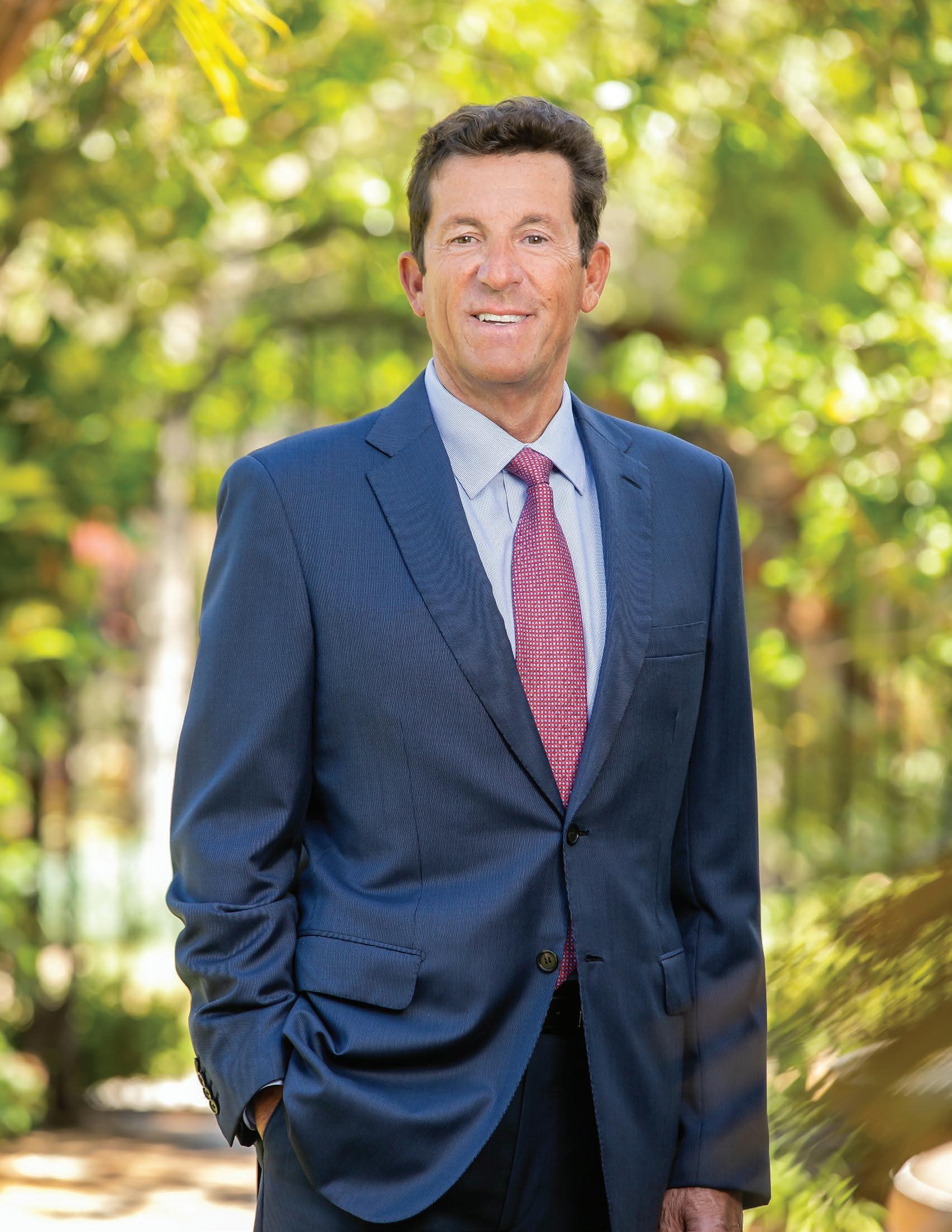
A T T O R N E Y O F T H E M O N T H 2020 2020
Robert and partners (from left to right): Robert J. Francavilla, David S. Casey, Jr., Gayle M. Blatt, Frederick Schenk
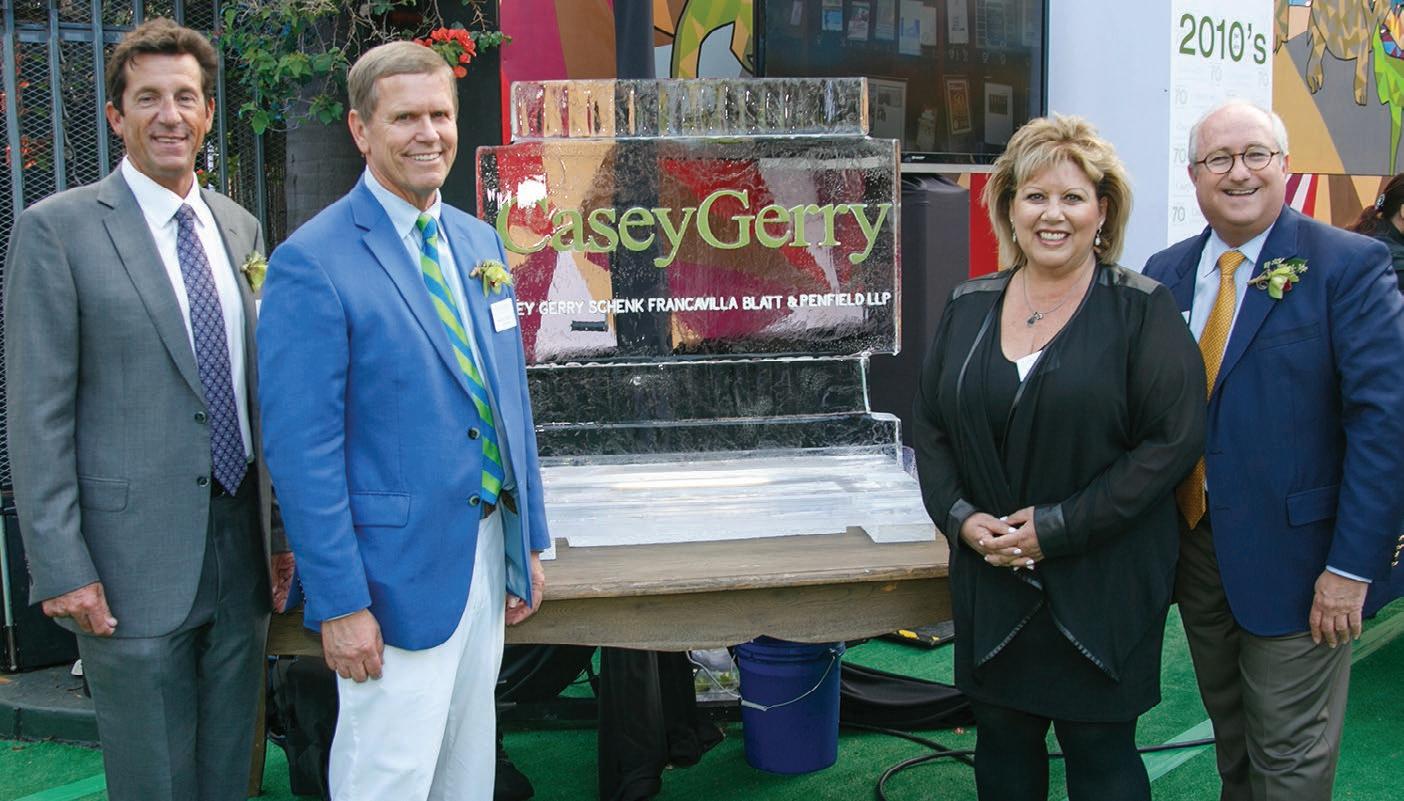
Another challenge was the claim that their client earned a good living as a physician and didn’t need the money. Most young victims of spinal cord injuries go on public assistance and usually struggle through life. Persons close to the plaintiff stated the obvious truth that he was successful due to hard work, dedication, and a desire to earn everything that he got. He was proud to be a viable, tax-paying and self-sufficient member of society.
The jury found him honest and credible. After an initial pre-trial offer of about $300,000 the jury awarded him $7.6 million in a verdict. “His was a compelling story. He was a perfect example of someone making the best of a bad situation, who made it to the top of his profession and still fought to do the very best he could do,” Francavilla says.
Francavilla was awarded Trial Lawyer of the Year by the Consumer Attorneys of San Diego for his work on this and numerous other cases.
A Father’s Guidance Launches a Career
Francavilla traces his drive and decision to become a personal injury attorney back to the guidance his father gave him. “My life was on a conveyor belt. I just moved along and followed the rules, without a major goal or direction,” Francavilla says. That changed when his father suggested a career in law.
Francavilla says, “I was pretty good in debate class. I liked to argue and being the middle child in a family of three sons, I was always the mediator. I had some lawyer qualities and my father saw that. He gave me some of the most important advice of my life. He said you can give more than you take in this world and it’s a lot more satisfying. It’s important to care about people. You can be in a position to help people who can’t help themselves. That is how you leave your mark.”
Francavilla countered that he wasn’t the smartest guy in the world and possibly wasn’t up to an education in the law. “Dad said, ‘Yeah, but you have the passion and if you apply yourself, nobody can outwork you.’ Watching my dad often work two jobs to take care of my family and never giving up, was the impetus behind me wanting to become an attorney,” says Francavilla.
Getting the Low Down in Law School
He initially got into the four-year evening program, but the day before classes started, a slot in the three-year day program opened up and Francavilla grabbed it.
Francavilla still had concerns about whether he could cut it. During his first semester he received the lowest grade in the class in Contract Law. He went directly to the contract professor’s office with the intention of asking how to improve his efforts. Before Francavilla could say a word, the professor told him, quite seriously, that he might not be cracked up to be a lawyer based on his poor performance. In a scene right out of the law school movie, The Paper Chase, the professor even suggested that Francavilla go back to Admissions to see if he could get some of his money back and go on and do something else.
“I refused to let him decide my fate. I managed to graduate in the top half of my class—a success, yet nothing to write home about, passed the bar on my first try, and got a job as an insurance defense lawyer right out of the box. My goal then was to find work as a plaintiffs personal injury lawyer representing individuals,” he says.
“I love people. I love being around people and getting to know their background and what makes them who they are. These qualities and personality traits are probably my greatest assets as a trial lawyer. They serve me well not only by helping me to get to know the people I represent, but in talking to juries. I feel like I have an ability to relate to everybody and show I care.
“I’m also not afraid to do the hard work. I owe that to my dad and the human beings I represent. I fight until the end. To use a sports analogy, I never take a play off. I never think I’ve made it. I’m only as good as my last case. I never let up because I have to know I have done everything in my power to win, everything in my power to get fair and reasonable compensation for the people I represent. We go up against some of the best lawyers in San Diego, in California and sometimes the country. I have to be ready to give my all in every situation, to never coast. Fight to win within the bounds of ethics,” Francavilla says.
The firm handles a lot of catastrophic personal injury cases. Francavilla says, “Our opponents are usually powerful and have the legal and financial backing to put up a fight. Most people don’t have the type of legal and financial resources to go against defendants like these. When we take on a client, our fees are contingent on if we win.” Sometimes the firm incurs hundreds of thousands of dollars in expenses trying to win a case. As a businessman Francavilla realizes that if the firm doesn’t win, they’re out that money. Yet he would not have it any other way. “The people we represent have had their lives and the lives of their families ripped apart by the negligence of powerful entities that need to be held accountable. We are often their only hope for a better tomorrow,” he says.
Francavilla is not intimidated by the odds. “I like these challenges. I am not afraid of any of the lawyers or firms I go up against.”
“Thorough preparation is essential in a relentless pursuit of justice. We prepare every case as though it is going to trial. That is how I can get fair and reasonable compensation for the people I represent. Also, the fact I have a winning trial record and have demonstrated that I can deliver substantial and fair verdicts at trial lets my opponents know I am able to repeat those results in the courtroom time and again,” Francavilla says.
A Focus on a Special Group
Francavilla and his wife of 18 years, Carla, have two sons, Zach (14) and Dominic (10). He is very active in his sons’ lives, especially in sports and fitness activities. The boys are talented basketball players and love the game. Francavilla coaches his kids’ basketball teams. The family are big Lakers fans and attend as many games as possible. Francavilla is an active runner and enjoys weight training. His experience many years ago as an amateur racing car driver ties in nicely with Zach’s interest in go-kart racing.
Francavilla also discovered an interesting and rewarding way to involve his sons in his career. The firm conducts a lot of jury focus groups. He says that some of his best focus group information comes from his two sons. When discussing the facts of his cases with his boys, they often provide valuable insights. For example, in a case where he had to prove that
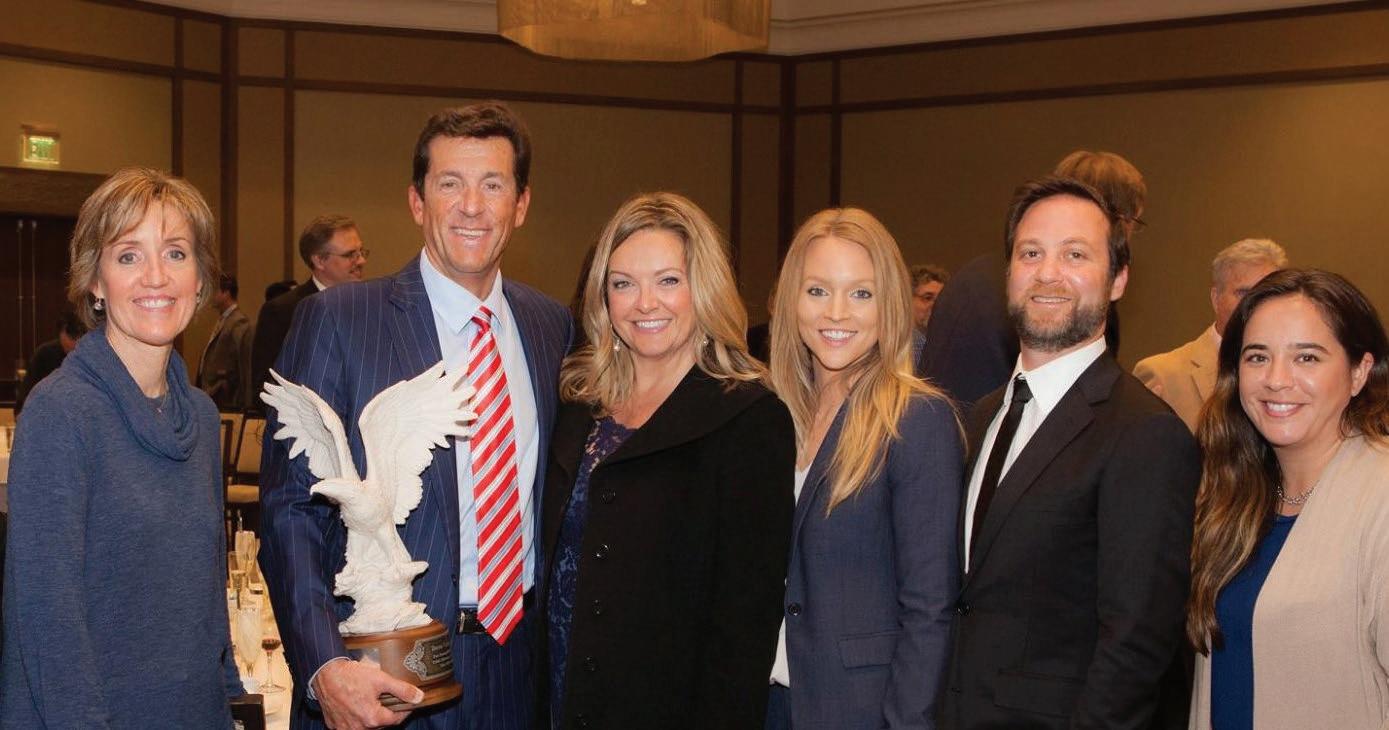
Team members (from left to right): Mary Jo Cunningham, Robert J. Francavilla, Carla Francavilla, Meagan L. Verschueren, Adam B. Levine, Christina Slomanson
a machine had mangled the hand of their client, it was a manager, or someone authorized by the manager who had removed the machine’s safety guard. The firm needed witnesses to find out if the manager had ever walked through and seen the unguarded machine. Zach quickly asked if the company had video cameras in the workplace. “I hadn’t even thought of that. They always give me a cut-to-the-chase assessment of the case and how I should approach it. They keep me from getting bogged down in the weeds, which I sometimes do. Plus, it’s fun and provides real quality time with my boys,” he says.
The bottom line in his approach to family, his career and his clients is constant. “If I can make a little part of this world better by raising good boys, loving and respecting my wife and improving the life of someone who through no fault of his own has suffered a tremendous loss, then I’ve gone a long way toward fulfilling what I believe is my life purpose.” n
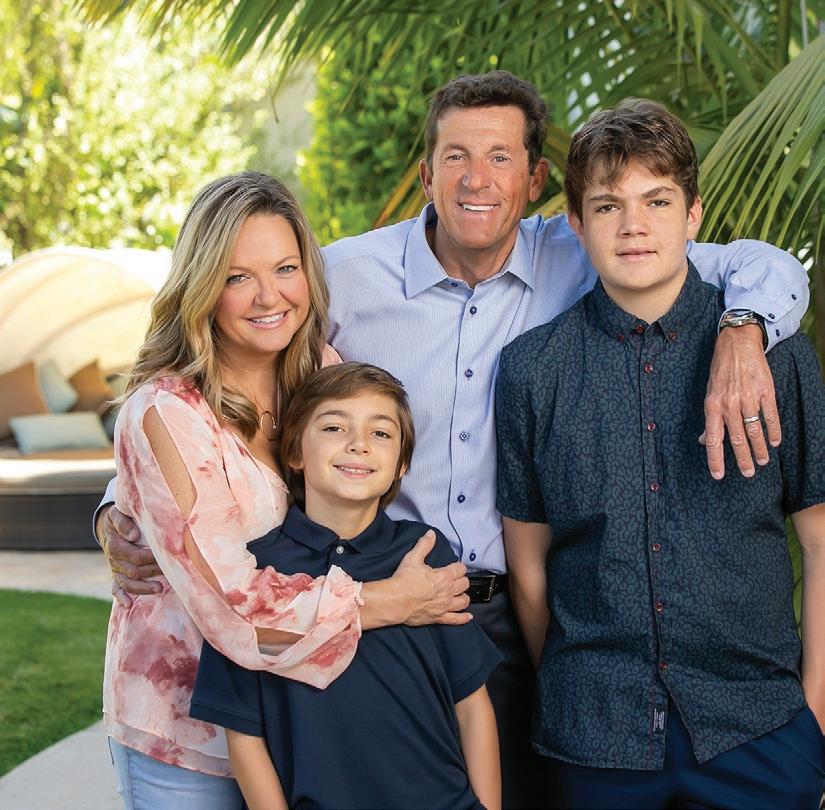
© Bauman Photographers
Family: Carla, son Dominic (age 10), Robert and son Zach (age 14)
Contact
Robert J. Francavilla Casey Gerry Schenk Francavilla Blatt & Penfield LLP 110 Laurel St. San Diego, CA 92101-1486 (619) 238-1811 www.CaseyGerry.com
EXPERIENCE
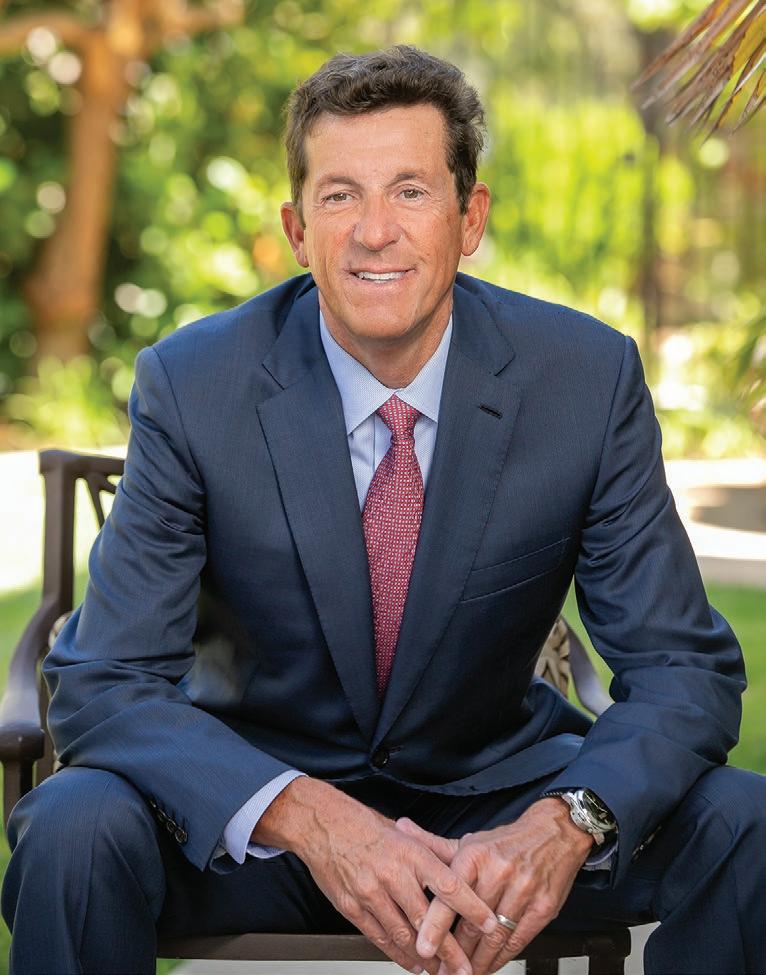
» EDUCATION
• B.B.A. University of San Diego 1983 • J.D. University of San Diego 1980
» HONORS AND AWARDS • 2019–2020 Lawdragon 500 Leading Plaintiff Consumer
Lawyers • 2008–2020 Best Lawyers in America • 2007–2020 San Diego Super Lawyers • Robert J. Francavilla Named One of SD Metro
Magazine’s Best Attorneys for 2017 • 2016 Consumer Attorneys of San Diego Trial Lawyer of the Year • Consumer Attorneys of San Diego’s Outstanding Trial
Lawyers Award—SEVEN TIME WINNER • 2015 Top 25 Plaintiff Lawyers, L.A. Daily Journal, • 2014 Lawyer of the Year, Products Liability Litigation/
Plaintiffs, Best Lawyers • 2012 50 People to Watch in 2012, San Diego Magazine • 2012–2013 Top Attorneys, San Diego Daily Transcript • 2010 Top 50 San Diego Super Lawyers
» ASSOCIATIONS & MEMBERSHIPS
• State Bar of California • American Association for Justice (AAJ) • Consumer Attorneys of San Diego (Board of Directors, 1995–1999) • Consumer Attorneys of San Diego (Executive Board
Member 2000–2005) • Consumer Attorneys of San Diego (President–2005) • Consumer Attorneys of California (Member, Board of
Governors, 1998) • American Board of Trial Advocates (ABOTA)
We Do What’s Right for Our and Your Referred Clients

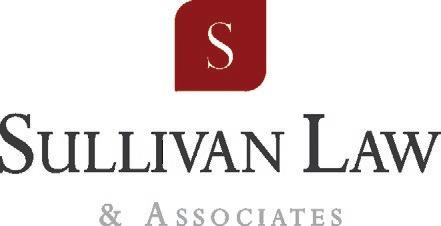
IRVINE’S PREMIER FAMILY LAW FIRM
• DIVORCE • SEPARATION • CHILD CUSTODY • CHILD SUPPORT • CHILD VISITATION • DOMESTIC
VIOLENCE • RELOCATION • RESTRAINING
ORDERS • PATERNITY • POST JUDGEMENT
MODIFICATIONS • ASSET & DEBT
DIVISION • SPOUSAL SUPPORT & ALIMONY
GENEROUS REFERRAL FEES PAID
At Sullivan Law & Associates, we are dedicated to doing the right thing and taking care of our clients, first and foremost. We understand what your referred clients are going through and strive to use our experience in this complex field to provide the best possible representation.
Our Irvine attorneys are committed to excellence in every case we take on. Led by Richard Sullivan, a family lawyer with 40 years of legal experience, our team is here to deliver effective solutions by addressing every need and concern.
Law Firm Strategies and Economic Turmoil

by Roger Hayse
The economic turmoil driven by the coronavirus has impacted virtually every law firm—some more significantly than others. Unfortunately, the pain has only begun for many. The demand for many transaction related practices is likely to be off for an extended period, and though most expect demand for litigation services to be steady, the ability of the court system to support the pre-virus level of activity is questionable. In addition, funding litigation may prove to be a challenge in the near term for many litigants.
As law firm leaders seek insights to developing strategies for this reality, I recommend a report from McKinsey and Company, published a few days ago. The report—COVID-19: Implications for law firms—includes valuable perspectives.
What to do. Although it is difficult to predict the actual decline in demand, firms can control how they respond to the decline. The following thoughts may provide some relief as your firm works on developing responsive strategies for the long term.
Realization. Virtually every firm can improve time-entry, billing and collection processes. Improvement in these areas can soften the impact of the decline in demand. The current crisis provides an opportunity to get everyone on-board with strengthening performance in these areas.
Client communication. If your firm does not have a proactive client communication/interview process, now is the time to implement one. It doesn’t have to be sophisticated; but it does need to include direct communication between the client and either a firm leader or one of the attorneys principally responsible for the relationship. A robust client communication strategy includes both, and provides insight into possible opportunities while deepening the existing relationship.
Internal communication. During any crisis, visible leadership that communicates frequently and directly is key to maintaining stability and preventing a run on the bank. Wise leaders find a way to strike a proper balance between reality and optimism. Transparency and vision are keys to maintaining the firm’s trust.
Labor reallocation. For multi-practice firms, aggressive reallocation of personnel to areas of greater demand is a difficult but realistic option. Billing rates may need to be adjusted and some time may need to be written off; but to the extent firm talent can be moved from slow areas to those in greater demand, it should be explored. n
Roger Hayse has spent more than 30 years closely advising law firm management and legal industry service providers. His career is highlighted by consistently providing the counsel and leadership critical to successful law firm transitions. Roger is a frequent writer and speaker, author of the 2002 book “Law Firm Strategy”, and co-author of the Hayse LLC Blog. Learn more at www.haysellc.com.
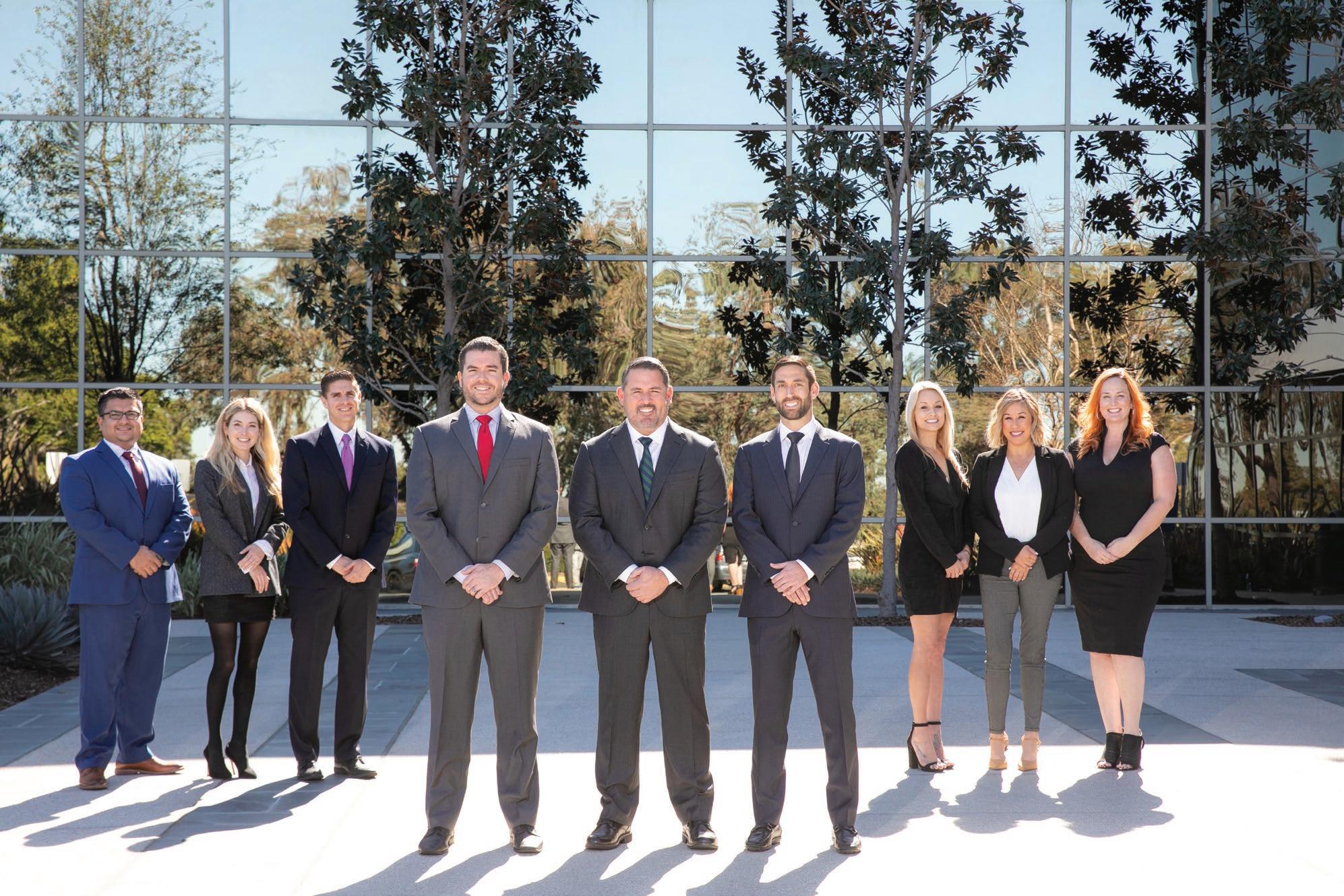
AGGRESSIVENESS & RESULTS We have recovered over $100 million for clients
• Vehicle Accidents • Wrongful Death • Dog Bites
Average Rating 5.0
• Premises Liability • Construction Accidents • Spinal Cord Injury • Brain Injuries • Medical Malpractice • Elder Abuse and Neglect • Police Brutality • Defective Products • Pharmaceutical Injury
Referral Fees Paid
The PPP Litigation Wave Is Coming

by Phillip S. Bixby
Many businesses and other borrowers, such as nonprofit organizations, that received Paycheck Protection Program (PPP) loans are now several weeks into disbursing their PPP loans for payroll, mortgage or lease payments, and utility payments. Businesses submitted applications to obtain their PPP loans in which a representative of the business made several certifications, including a certification that the loan was “necessary to support ongoing operations.” At some point in the future, many of these businesses will attempt to have some, or all, of the loans forgiven. Throughout this process, these businesses face exposure, including exposure to their own employees, some of whom may file “Qui Tam” lawsuits against their employers alleging violations of the False Claims Act. Each business participating in the PPP should be aware of the risk and take steps to prevent or prepare for such potential lawsuits.
The PPP and the Certifications Made by Small Businesses to Secure Loans
In response to the COVID-19 pandemic, congress passed the Coronavirus Aid, Relief, and Economic Security Act (CARES Act). The CARES Act is the largest emergency stimulus package in history, devoting trillions of dollars’ worth of government funds to address the devastating impact of COVID-19 on the U.S. economy through direct impacts of the disease itself as well as self-induced damage to the U.S. economy caused by shutdowns, shelter-in-place restrictions, and quarantines. The CARES Act includes a myriad of provisions to boost the economy, including the PPP, which offers billions of dollars of loans forgivable under certain conditions.
To secure PPP loans, businesses were required to submit “Borrower Application Forms.” These forms included various “Certifications and Authorizations” on the second page of the application packet. It is certainly likely that many applicants, in the rush to secure PPP loans, glossed over these certifications. However, several of these certifications may expose those businesses to litigation exposure for possible allegations of fraud or false claims.
Relevant Certifications under the PPP
Applicants for PPP loans certified, among other things, that: • the applicant is eligible to receive a PPP loan. • the loans will be used only for the business-related purposes set forth by the PPP. • “current economic uncertainty makes this loan request necessary to support the ongoing operations of the Applicant;” • and the funds will be used to retain workers and maintain payroll or make mortgage interest payments, lease payments, and utility payments as specified under the PPP, and that if the funds are knowingly used for unauthorized purposes, the applicant may be liable for federal law violations punishable by, among other things, substantial fines and possible prison sentences.
The PPP Application requires that the certifications be made “in good faith.”
On May 13, 2020, the Small Business Administration (“SBA”) responded to frequently asked questions by declaring that any borrower, together with its affiliates, which received PPP loans with an original principal of less than $2 million will be deemed to have made the required certifications concerning the necessity of the loan request in good faith. The SBA further stated that if it determines that a borrower “lacked an adequate basis for the required certification concerning the necessity of the loan request,” the SBA will seek repayment of the loan and will inform the borrower that no forgiveness will be forthcoming. Full repayment of the loan will preclude “administrative enforcement or referrals to other agencies” regarding the certification. This updated guidance from the SBA should significantly reduce a business’s exposure for its certifications regarding “necessity of the loan,” but certification exposure will remain as to the business’s certifications regarding loan eligibility and how loan proceeds are to be spent.
Most businesses applying for, and accepting, PPP loans are doing so with the hope and possible expectation that all or most
of the loans will be forgiven, turning the loans essentially into grants. After a business has distributed its PPP funds and when it seeks loan forgiveness, it will be required to submit paperwork documenting what the money was spent on. Businesses making distributions of PPP loans are hopefully keeping meticulous records of those distributions. Such record-keeping will hopefully assist in obtaining substantial loan forgiveness. Such recordkeeping might also assist in defending against future fraud claims.
The False Claims Act and Qui Tam lawsuits
Future fraud claims may come from individuals, including one’s own employees, in the form of “Qui Tam” lawsuits seeking recovery under the False Claims Act (FCA), 31 U.S.C. § 3729.
What is the FCA?
The FCA was enacted during the Civil War in 1863 following concerns that suppliers of goods to the Union Army were defrauding the government. The FCA provided that false claims to the government were liable for double damages plus further penalties. The statute has been repeatedly amended, including amendments in 1986 allowing for treble damages and raising the limits of further penalties. Violations of the FCA require knowledge of the falsity of claims made to the government, which can include actual knowledge, deliberate ignorance of the truth or falsity of the information, or reckless disregard for the truth or falsity of the information. The FCA definition of “claims” includes programs such as the PPP, in which the Federal Government is requested to reimburse the contracting party.
What is a Qui Tam lawsuit?
The FCA allows a private person to file suit for violations under the FCA on behalf of the government. A suit filed by a person on behalf of the government is known as a “Qui Tam action” and the person bringing the action is referred to as a “relator.” The action is filed with the court under seal and is provided to the local U.S. Attorney. The action is initially sealed for 60 days, allowing for the government to investigate the allegations in the action. The government then must notify the court whether it will “intervene” in the action, or decline to take over the action, in which case the relator can proceed without the government. If the government intervenes in the Qui Tam action, it takes over primary responsibility for pursuing the action, including the authority to dismiss or settle the action.
Why would an individual bring a Qui Tam lawsuit under the FCA?
An individual may choose to initiate a Qui Tam lawsuit against a business, asserting that the business committed FCA violations regarding PPP loans. This could include allegations including, but by no means limited, to the following: • the business was not eligible for PPP loans. • the business did not spend the PPP money as required or made inaccurate filings about such expenditures; and/or • the loan was not “necessary to support the ongoing operations of the applicant, or that the small business had recourse to other moneys.” Why would an individual make such allegations? The most obvious reasons might include: • To secure a financial reward. If the government intervenes in the Qui Tam action, the relator is entitled to receive between 15 and 25 percent of the amount recovered by the government. If the government declines to intervene, the relator’s share is increased up to 30 percent. • To obtain “whistleblower” status and to protect against termination or other negative employment actions. The FCA protects employees, contractors, and agents who engage in protected activity from retaliation in the form of their being “discharged, demoted, suspended, threatened, harassed, or in any other manner discriminated against in the terms and conditions of employment.” 31 U.S.C. §3730(h)(1). • To “get back at” or to otherwise punish a business receiving
PPP loans for a variety of reasons. • To take action against perceived wrongdoing out of a sense of moral righteousness or obligation.
What can businesses do to protect against this potential litigation?
At this point, businesses have already made their “good faith” certifications in seeking PPP loans. Businesses will, in the future, be making further certifications or other representations in seeking possible forgiveness of those loans. To minimize the risks of a successful Qui Tam lawsuit under the FCA, businesses should be focusing on meticulous record-keeping of PPP expenditures and should carefully assess those expenditures for which it seeks loan forgiveness. It is not clear to what extent PPP loan forgiveness requests will be reviewed, but businesses should plan for close and careful scrutiny, particularly if the loan exceeded $2 million. Each payroll expense, mortgage or rent payment, and utility payment must be carefully documented.
When the time comes to seek loan forgiveness, a business will hopefully be in a strong position to make such a request, having spent PPP funds only on eligible expenses and having documented such expenditures meticulously. Handling the PPP loan and forgiveness request properly and documenting all aspects of the loan’s use will put businesses in a strong position to prevent, or defend against, any potential Qui Tam lawsuits alleging fraud. Such proper handling of the loan, combined with the SBA’s recent guidance essentially presuming “good faith” for certifications regarding loan necessity, will put businesses in a strong position to prevent, or defend against, any potential Qui Tam lawsuits alleging fraud or other wrongdoing. n
Phillip S. Bixby is a civil litigation attorney at Verrill Dana LLP. His practice focuses on aggressive and creative problem-solving to put his clients in the best possible position at alternative dispute resolution or trial. Learn more at www.verrill-law.com.




